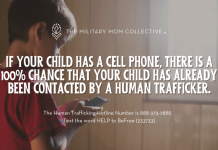Five years ago, we adopted a little girl from China. The journey has been filled with joys, surprises, and struggles we could have never imagined. When we started the process, we thought our future daughter had a simple special need that was easily correctable. Her adoption file did not accurately represent her actual needs, and when we arrived in China, we were shocked at the amount of information that was not disclosed to us.
I believe adoption is a beautiful process and a wonderful way to build a family. I’m also a bit wiser now and believe that being properly informed and prepared are keys to surviving the storm after a child from a tough situation enters your home.
I can’t go back and change the pain that my child carries as much as I wish I could. I also can’t change the strain that those first few years with her home placed on my marriage or biological kids from trying to undo much of her trauma.
What I can do is sit across from you like a friend and share my heart about what this experience has taught me about pain and vulnerability.
One of the first things I discovered after bringing our daughter home is that walking through a painful season is uncomfortable and it often makes other people uncomfortable when you try to share a less than rosy perspective.
Many people told us they admired us and that we were doing something extraordinary. And while I appreciate the support and encouragement, those sentiments were falling on deaf ears because we were drowning. What was even worse to hear was when people would say, “Oh I could never do that.” Well, I don’t think I can do it either, but I don’t have a choice. But I don’t say that. I smile awkwardly instead. We just don’t talk about the times we cry ourselves to sleep or struggle to get out of bed in the morning.
The truth is our pain often makes other people feel uncomfortable. They want to fix it or gloss over it. I understand the sentiment. I have the exact same tendency. The problem is that when we try to fix it or gloss over it, we minimize that person’s pain, which only causes them to feel more alone. And so the cycle of pain and loneliness continues.
It wasn’t until I walked this lonely season with our daughter’s attachment issues and multiple surgeries, therapies, and specialists’ appointments that I realized how hard it is to really be vulnerable in our society.
We love pep talks, platitudes, and Nike slogans, but no one wants to hear about what happens when it all feels like too much and you literally don’t know how to go on.
So this is what I want to say if you know someone who is walking through a really dark season of life and struggling to put one foot in front of the other: One of the kindest and most loving things you can do for someone who is struggling is to sit with them in their pain. Don’t offer pity or platitudes. Just be still with them for a moment and let them know they are not alone.
We need someone to say, “I’m sorry. That must be really hard.” And that is all. I promise you those are some of the most powerful words of comfort to someone’s soul.
I know because the times when someone was willing to say them and just sit in that pain with us for a moment, I was changed. Something was able to break loose in those moments and I felt heard and understood instead of judged or dismissed.
If you’re reading this, and you’re the one walking through a painful season right now, I have three things that I think are key to surviving and coming out stronger on the other side:
1. Avoid Numbing Out
Numbing out is the process of avoiding our emotional pain. It’s very difficult, but very important to resist the urge to run during tumultuous times. Allow yourself to process your pain and seek out help from a professional whenever you need it. People numb out in a variety of ways including working too much, staying too busy, checking out emotionally or engaging in risky behaviors that are inconsistent with their personality. You have to feel it to heal it.
2. Be Real
Seek out people you can be real with. Join a group specifically for the struggle you’re dealing with or contact old friends who have known you for so long that you’ll never feel judged. Don’t try to put on a good face for the people who know you well. You are hurting yourself by trying to keep it all together. Be discreet about your struggles (not everyone wants or needs to hear your problems), but be vulnerable and share with those you trust.
3. Avoid Sunshine and Rainbows People
I’ve always been an optimist who believes in pulling yourself up by the bootstraps and getting on with life. But during a difficult season, you don’t need the “suck it up and move on” people, you need people who can handle your pain and allow you to make sense of it.
People that insist on tying your story up with a bow and pointing out the positives are not your people right now.
They can come back in later when you aren’t drowning. In our case, it was important to not spend a lot of time with people who had adoptions that went perfectly smooth because the comparison only made us feel worse.
Life can be really hard whether you’re struggling with a child, in your marriage, through a deployment, or with an extended family member. It’s OK to just be you right now. Don’t be afraid to let your guard down, ask for help, and be real. And on the other side, you may discover a more compassionate, real version of yourself. You may be less rosy perhaps, but more loving and kind in the end.












Well said! A much needed message, thank you for opening your heart and writing it. Blessings, Jenn T
Thank you Jenn! Blessings to you as well.
Comments are closed.